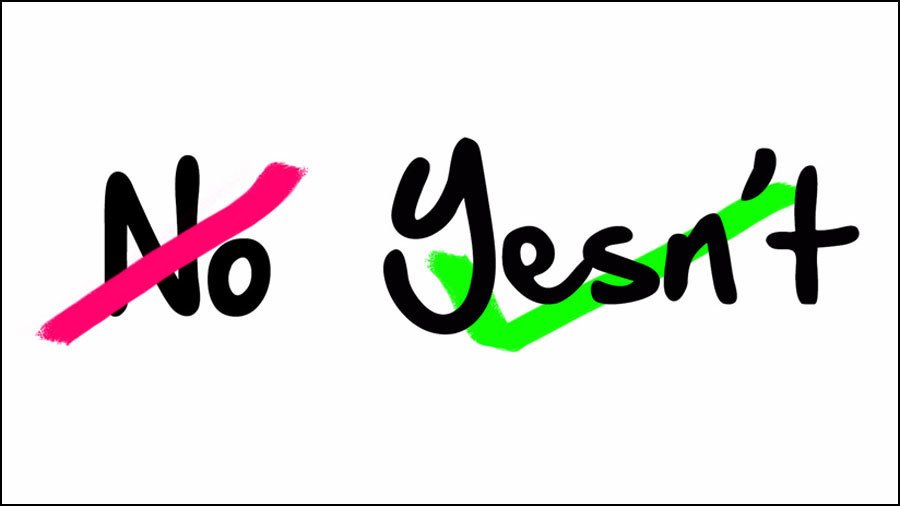Yesn’t? Latest social media craze sees people call for ‘No’ to be scrapped

More than 30,000 people have signed a petition to change the word ‘No’ in the dictionary to ‘Yesn’t,’ in what appears to be the latest online craze following the ‘Yanny and Laurel’ debate.
The reason behind it is unclear but the petition has since gone viral and effectively asks signatories to agree to speaking child-like gibberish.
READ MORE: Yanny or Laurel? Internet divided over infuriating audio (POLL)
“Change the word ‘No’ in the English language to ‘Yesn’t,’” reads the Chang.org petition, which was set up by UK resident Ewan Maloney. Reaction to the cause has been mixed, however, with some folks in full agreement and others not so much.
It's been a weird week in the world of words. First "yanny" (https://t.co/9DaTqZfWhK), and now... "yesn't"? https://t.co/mAxnWjlZdS
— Ben Zimmer (@bgzimmer) May 18, 2018
Ive always had a difficult time saying “no” so from today im gonna say yesn’t
— Bipin (@biipiinho) May 16, 2018
no = 👎👎👎😤yesn't = 👌👌😂🆒🔥 pic.twitter.com/g1DhKCZTH7
— Lupo (@Lupoternal) May 18, 2018
Just stop...no we don't want to change the word "no" to "yesn't" https://t.co/yKYYtz0y7npic.twitter.com/8U5HptoEE3
— 100.7 KGMO (@1007KGMO) May 19, 2018
I decided to make an autocorrect to fill no with yesn't.It was more troublesome than I thought XD help
— DAKINUVPEPR (@DAKINUVPEPR) May 19, 2018
Dictionary.com has added the phrase to its slang section, describing it as a “negative used to express dissent or an unwillingness to do something.”
READ MORE: Yanny or Laurel? Trump weighs in on raging internet debate (VIDEO)
“It is another (or better) way of saying ‘No,’” it adds.
No is a word. Yesn't is also a word. #SortOfhttps://t.co/TB9h2xqMWv
— Dictionary.com (@Dictionarycom) May 19, 2018
Meanwhile, American publisher Merriam Webster has chimed in on the debate, indicating that it will consider recognizing the bizarre word in its dictionary.
We will be announcing our decision on 'yesn't' at 4:20 ET.
— Merriam-Webster (@MerriamWebster) May 18, 2018
Think your friends would be interested? Share this story!














